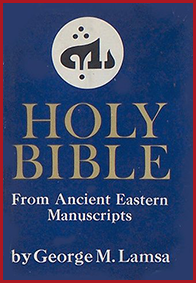BOOK OF LEVITICUS
Lamsa Bible (Chapter 20, Holy Bible, ISBN for example 9780060649234)
Amplified Bible (Chapter 20, Zondervan Publishing House, 1995, ISBN 0310951852)
Paradise Lost (The Portable Milton; Paradise Lost, John Milton, Penguin Books, 1976, ISBN 0140150447)
In the book of Leviticus, God reveals further commandments conceived in the all-encompassing fire of limitless intellect. For example, from Lamsa’s translation,
“And the Lord spoke to Moses, saying,
Say to the children of Israel or of the proselytes who sojourn in Israel who shall cast any of his semen into an alien woman…the people of the land shall stone him with stones.
And I will pour out my anger against that man and will cut him off from among his people; because he cast his semen into an alien woman to defile my sanctuary and to profane my holy name.
And if the people of the land do in any way ignore the offense of the man who has cast of his semen into an alien woman, that they may not kill him,
Then I will set my anger against that man and against his family, and will cut him off and all who go astray after him, because they go astray after alien women from among their people.”[1]
The advantage this could confer to an ancient people hoping to preserve themselves as a distinct group seems clear enough, but one wonders how the modern believer contorts it into a decree acceptable to modern sensibilities.
Through what manoeuvres does he seek to reconcile this ostensible anti-miscegenation injunction with modern life? One might expect he’d have centuries of pious circumcogitation to draw on, but Lamsa’s translation departs here from the translations employed by most English-language commentators. Parallel passages from such versions instead forbid incinerating infants in sacrifice to the horned god Moloch [2].
Footnotes:
[1] Leviticus 20:1-5 (Holy Bible from the Ancient Eastern Text: George M. Lamsa’s Translation from the Aramaic of the Peshitta, Harper Collins Publishers).
[2] For example, in the Amplified Bible,
“And the Lord said to Moses,
Moreover, you shall say to the Israelites, Any one of the Israelites or of the strangers that sojourn in Israel who gives any of his children to Molech [the fire god worshiped with human sacrifices]…the people of the land shall stone him with stones.
I also will set My face against that man [opposing him, withdrawing My protection from him, and excluding him from My covenant] and will cut him off from among his people, because he has given of his children to Molech, defiling My sanctuary and profaning My holy name.
And if the people of the land do at all hide their eyes from the man when he gives one of his children [as a burnt offering] to Molech [the fire god] and they overlook it or neglect to take legal action to punish him, winking at his sin, and do not kill him [as My law requires],
Then I will set My face against that man and against his family and will cut him off from among their people, him and all who follow him to [unfaithfulness to Me, and thus] play the harlot after Molech.”
Leviticus 20:1-5 (Amplified Bible, Zondervan Publishing House)
A high-resolution jpeg of Blake’s The Flight of Moloch appears at,
http://www.blakearchive.org/exist/blake/archive/object.xq?objectid=but538.1.wc.05&java=no
(Illustrations to Milton’s “On the Morning of Christ’s Nativity”, The Thomas Set, Whitworth Art Gallery, University of Manchester, Department of Prints and Drawings)
“First Moloch, horrid king besmeared with blood
Of human sacrifice, and parents’ tears,
Through the noise of drums and timbrels loud
Their children’s cries unheard, that passed through fire
To his grim idol. Him the Ammonite
Worshiped in Rabba and her watery plain,
In Argob and in Basan, to the stream
Of Utmost Arnon. Nor content with such
Audacious neighborhood, the wisest heart
Of Solomon he led by fraud to build
His temple right against the temple of God
The Pleasant valley of Hinnom, Tophet thence
And black Gehenna called, the type of Hell.
Next Chemos, the obscene dread of Moab’s sons,
From Aroer to Nebo, and the wild
Of southmost Abarim; in Hesebon
And Horonaim, Seon’s realm, beyond
The flowery dale of Sibma clad with vines,
And Elealè to the Asphaltic pool.
Peor his other name, when he enticed
Israel in Sittim on their march from Nile
To do whim wanton rites, which cost them woe.
Yet thence his lustful orgies he enlarged
Even to that hill of scandal, by the grove
Of Moloch homicide, lust hard by hate;
Till good Josiah drove them thence to Hell.”
The Portable Milton (Paradise Lost, John Milton, The Viking Press: New York, 1987)


